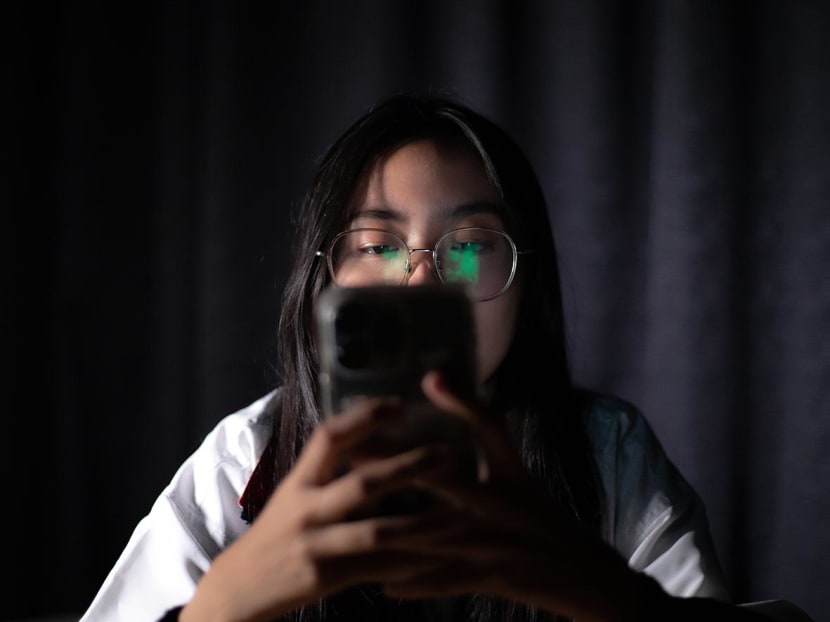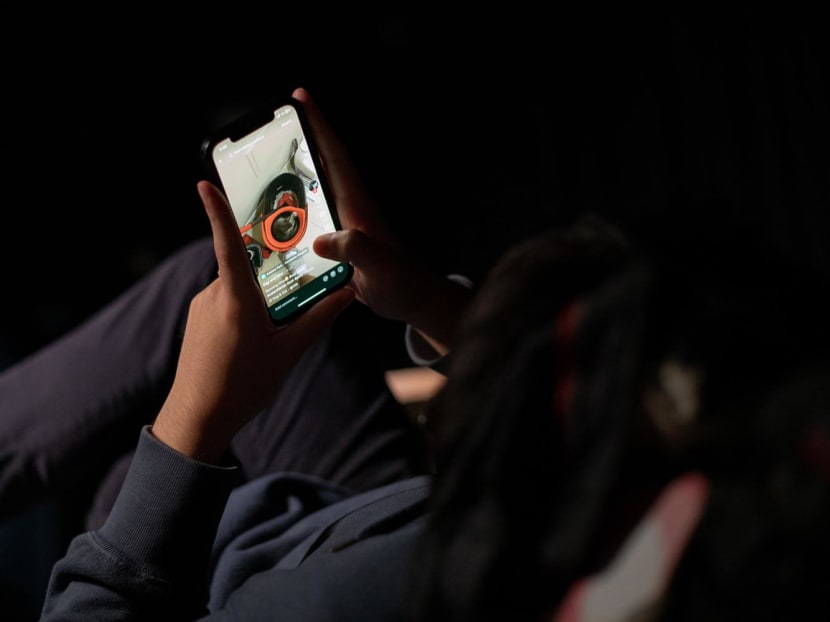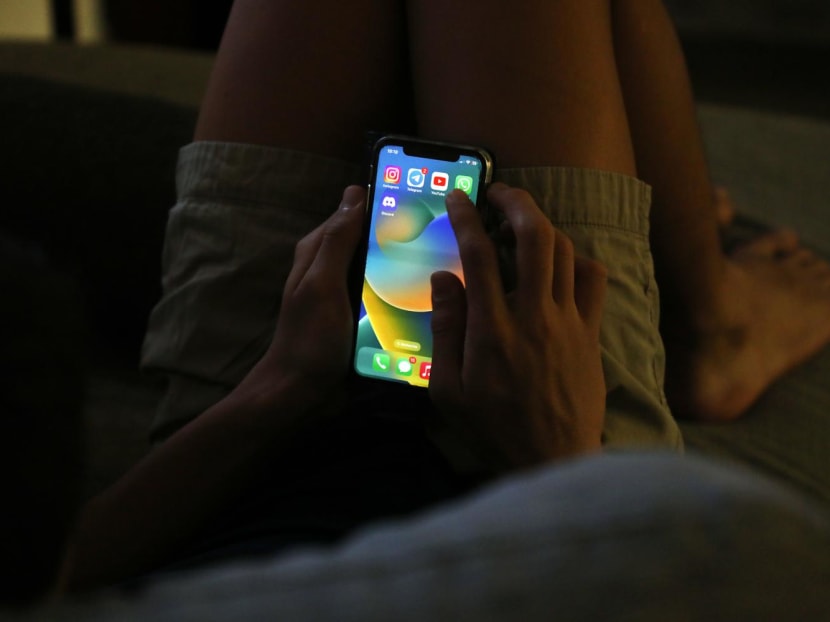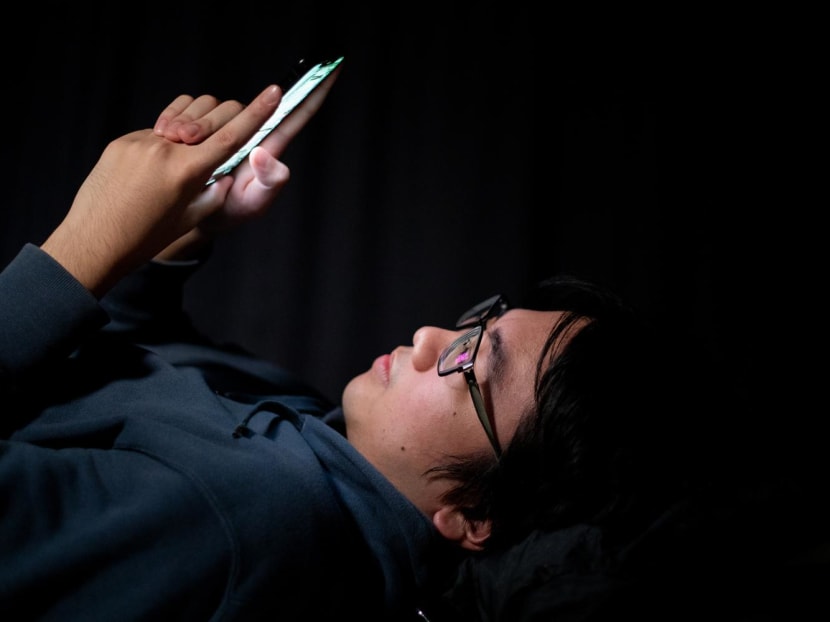The Big Read in short: Teenagers' unhealthy addiction to social media
SINGAPORE — Fourteen-year-old student Nadheeruddin Tajuddin spends about four to five hours a day on social media, sometimes till the wee hours of the morning, which leaves him waking up the next day feeling “not that great”.

Experts, parents and youths acknowledge that social media exposure is inevitable in this age, adding that it is important to help the young understand how to use social media in moderation and with boundaries.
Each week, TODAY’s long-running Big Read series delves into the trends and issues that matter. This week, we look at how social media addiction could impact children and youths’ mental health, and why it should be taken seriously in the face of inconclusive research. This is a shortened version of the full feature, which can be found here.
- In May, the United States’ top health official issued a warning about the “profound risk of harm” that social media could have on children and adolescents’ mental health and well-being
- Teenagers and youths interviewed by TODAY speak of how social media addiction has negatively affected their lives and emotions, though most have not stopped using it completely
- While studies have drawn correlations between excessive social media use and a negative impact on children and youths’ mental health, more research is needed to conclusively establish its causal direction and full effects, say experts
- They also told TODAY that social media addiction is currently not recognised as a mental health disorder, which could impede the consistency of its terminology, choice of diagnostic tools used, and recommendations on treatment
- Ultimately, experts, parents and youths acknowledge that social media exposure is inevitable in this age, adding that it is important to help the young understand how to use social media in moderation and within boundaries
SINGAPORE — Fourteen-year-old student Nadheeruddin Tajuddin spends about four to five hours a day on social media, sometimes till the wee hours of the morning, which leaves him waking up the next day feeling “not that great”.
At times, he even finds himself getting dizzy or sick after consecutive weeks of late-night scrolling. When this happens, he usually stops using social media for a few days, but eventually returns to it.
While Nadheeruddin — who uses mostly TikTok but also spends time on Instagram and Twitter — feels like social media has affected his ability to concentrate in class, he does not plan to get rid of his social media applications completely as he fears becoming “clueless”.
For Secondary 4 student Rebecca Kui, Instagram’s algorithm and infinite scroll feature means that she is constantly fed videos and content that she enjoys. She finds it keeps her entertained for hours, which makes it difficult for her to close the app.
“It’s kinda scary because you begin to neglect your other priorities, and minutes can turn into hours very quickly,” said the 16-year-old, who likens social media to “drugs but under the disguise of entertainment”.
Rebecca also noted how social media has affected her ability to process her emotions, as she could be fed random and vastly different videos consecutively through her TikTok “For You” page.
From being shown a tearful video about a dog passing away, to someone cracking a joke in the next, Rebecca said it was “scary” that she could go from crying to laughing within seconds, as she did not have enough down time between the videos to fully process what she had watched.
WHY IT MATTERS
Nadheeruddin and Rebecca’s experiences echo the findings of studies around the world on the detrimental impact that social media could have on one’s mental health.
Last year, Singapore saw its highest number of suicide rates since 2000, with the greatest number of deaths being among young people aged 20 to 29, the Samaritans of Singapore (SOS) said in June.
For those aged 10 to 29, suicide remained the leading cause of death for the fourth consecutive year, constituting more than one third (33.6 per cent) of all deaths within this group. Suicide deaths also rose from 112 in 2021 to 125 in 2022, among this group.
While there are no local studies conclusively linking social media with suicide, United States research psychologist Jean Twenge argues that there is an indisputable connection between the rise of smartphones and social media and a decline in teen mental health globally.
In May, the US’ top health official, Surgeon General Vivek Murthy, also issued a stark warning to parents, tech companies and regulators, saying that evidence is growing about how social media use could have a “profound risk of harm” on children and adolescents’ mental health and well-being.

Children and adolescents are particularly vulnerable to the effects of social media addiction, experts told TODAY.
Ms Ranjini Veerappan, a certified addiction specialist at Holistic Psychotherapy Centre, said that a child’s brain is still maturing and rapidly developing until they are about 25 years old.
As their decision-making ability, impulse control, and judgement are still being developed, excessive social media use could impact their brain development and potentially lead to long-term cognitive and emotional consequences, she said.
Given their age, they may also have limited coping skills to manage difficult situations that may arise in the digital world, which could affect their mental health, Ms Veerappan added.
Other experts also warn that teens addicted to social media would find it hard to develop the essential cognitive capability and emotional skills necessary to function healthily as an adult later in life.
Children who struggle with one addictive behaviour may also be vulnerable to other kinds of addictions in the course of growing up.
THE BIG PICTURE
Despite the growing body of evidence, experts told TODAY that social media addiction is currently not recognised as a mental health disorder in the Diagnostic and Statistical Manual of Mental Disorders, which provides mental health professionals in countries like Singapore and the US with a standard classification of mental disorders.
“Hence, we can only highlight the impact of excessive social media use but we won’t be able to talk about diagnosis since it’s not a recognised disorder,” said Dr Ong Say How, a senior consultant and chief of the department of developmental psychiatry at the Institute of Mental Health.
The World Health Organization, which produces the International Classification of Diseases (ICD), has also not initiated any formal working committee to look into social media use disorder, said Ms Julianna Pang, an addictions therapist from Visions by Promises.
Ms Pang added that for a condition to be included in the ICD, it requires the gathering of sufficient research data, with consistent outcomes from around the world, about the condition’s diagnostic criteria, severity assessment, and its treatment recommendations.
Not having a formal inclusion of the condition in the ICD may affect the consistency of its terminology, choice of diagnostic tools used, and recommendations on treatments, said Ms Pang.
Furthermore, while existing studies have drawn correlations between excessive social media use and its resultant negative impact on children and youths’ mental health, experts said that more research is needed for a conclusive look at its effects, and to establish that social media is indeed having a detrimental impact on adolescents’ mental health.

Dr Jeremy Sng, a lecturer at Nanyang Technological University’s School of Social Sciences, said: “Many studies have claimed to find links between social media use and mental health issues, but the causal direction of these studies is actually unclear.”
He added that it is important to also consider the study’s methodology, as correlation does not always mean causation.
“The effects of social media are very difficult to disentangle, because it’s not that we are only using social media.
“We are also doing a lot of other things — we are going to school, we're dealing with family, relationships, and all that. So it’s difficult to pinpoint that something has happened solely because of social media,” said Dr Sng.
Dr Adrian Loh, a senior consultant psychiatrist from Promises Healthcare, added: “For social media, it has been around for barely past a decade, so we are still trying to understand downstream implications.”
THE BOTTOM LINE
Since there is no escaping from a rapidly digitalising world, parents, professionals, policymakers and social media companies alike will have to navigate the myriad challenges, alongside children and youths’ exposure to, and use of, the various platforms, experts told TODAY.
To protect Singaporeans from harmful online content, Parliament passed a law in November which empowers the authorities to issue directions to online communication services to ensure local users are protected from content such as sexual violence and terrorism.
Providers who fail to comply with these directions could be subjected to fines of up to S$1 million.
To minimise the damage that social media could do to young people, Dr Murthy, the US Surgeon General, said in his report that parents and caregivers can create a family media plan which sets technology boundaries at home, create tech-free zones and report problematic content and activity.
Ms Jane Goh, deputy director of creative and youth services at the Singapore Association for Mental Health, said that educating the young on social media use would be the way to go.
“While preventing the use of social media would seem like a simple solution, it would also create a feeling of isolation from their peers, creating a feeling of Fear Of Missing Out (Fomo),” said Ms Goh, echoing the sentiments of youths like Nadheeruddin.
For Nadheeruddin, because he uses social media to “check on what’s happening”, he worries that he might become “clueless” if he stops using it completely.
Agreeing, Ms Nicole Pang, who is head of mental health care at youth-based non-profit organisation Impart, said that managing social media use is not solely about limiting the amount of time spent, but in empowering youths to establish their boundaries and make active decisions on the kind of content they would like to engage in or not interact with.
Ms Tham Yuen Han, the clinical director at addiction treatment centre We Care Community Services, said that to prevent an over-dependence on digital use, parents may also prioritise introducing non-digital-based activities in their child’s formative years.
This includes encouraging outdoor activities and sports, especially those that involve group and in-person social interaction, teamwork and collaboration.

Ultimately, the ability to navigate social media in a healthy way requires not only tech savviness and knowledge of risks online, but also self-understanding and emotional and behavioural regulation.
“We can help young people develop that by having conversations about how and what they feel, including when they encounter things they see on social media,” said Dr Andrew Yee, an assistant professor of media and communication at the Singapore University of Technology and Design.
Ms Claire Leong, a counsellor at Sofia Wellness Clinic, said that it is also important to understand that those who are addicted to social media today are not doomed to a life of addiction and dysfunction.
“It is possible to get better. It has to begin with the awareness that the current behaviour is unhealthy, and there has to be an intention to do something about it,” she added.











